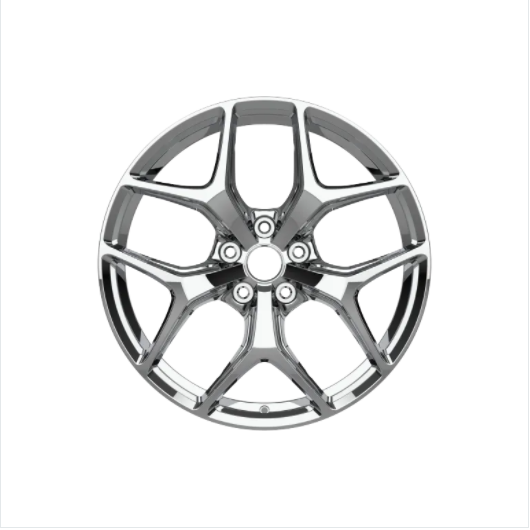In the world of automotive performance, the choice of wheels can greatly impact the overall driving experience. Two popular options for high-performance enthusiasts are flow formed wheels vs forged. While both deliver exceptional strength and durability, there are notable differences between the two manufacturing processes that set them apart. This article will delve into the intricacies of flow formed vs forged wheels, comparing their production methods, construction, performance, and cost-effectiveness.
I. The Manufacturing Processes:
A. Flow Formed Wheels:
1. What is flow formed wheels?
Are flow formed wheels good for potholes? Flow formed wheels, also known as flow forged wheels, are manufactured using advanced casting techniques. The process begins with a low-pressure casting, where molten aluminum is poured into a mold and spun rapidly. Consequently, centrifugal force shapes and compresses the outer barrel of the wheel, while the inner barrel retains a relatively lower pressure.
2. Mechanical Properties:
Are flow formed wheels strong? Flow formed wheels possess increased tensile strength due to the grain structure formed during the manufacturing process. The external layers of the wheel acquire a more compressed structure, resulting in enhanced rigidity. This provides superior performance characteristics when compared to traditional gravity cast wheels.
B. Forged Wheels:
1. Forged Wheels Definition and Method of Production:
Forged wheels are manufactured using a forging process that involves intense pressure and localized heating. The wheel's shape is obtained by pressing a solid piece of billet aluminum between two dies at an extremely high temperature. This process not only shapes the wheel but also enhances its structural integrity.
2. Mechanical Properties:
Are forged wheels costier than flow forrme? Forged wheels exhibit an exceptional level of strength due to their compact grain structure. The forging process aligns the grain and eliminates porosity in the material, resulting in a wheel that can withstand high stress. Such structural integrity makes forged wheels highly desirable for demanding driving environments.
II. Construction:
A. Flow Formed Wheels:
1. Application of Heat:
Flow formed wheels have the advantage of being cast initially and then heat-treated to enhance their strength. This heat treatment further improves the grain structure of the wheel, making it more durable and resistant to deformation.
2. Rim Thickness:
Flow formed wheels typically have a thinner cross-section in the rim compared to forged wheels. The reduced weight in this area allows for better heat dissipation, resulting in improved brake performance.

B. Forged Wheels:
1. Monoblock and Multi-piece Designs:
Forged wheels are commonly available in two configurations: monoblock and multi-piece. Monoblock wheels are cast as one solid piece, which results in a lighter and stronger wheel. Multi-piece wheels, on the other hand, are manufactured by combining a forged center disk with an outer barrel. This design allows for greater flexibility in customizing offset and width.
2. Rim Thickness:
Forged wheels have the advantage of being able to retain a thicker rim section, providing increased lateral stiffness. This added rigidity in the rim translates to enhanced cornering capabilities and improved steering response.
III. Performance:
A. Flow Formed Wheels:
1. Weight:
Flow formed wheels are lighter compared to their forged counterparts. The reduced weight contributes to improved acceleration, braking, and overall handling of the vehicle. In motorsport applications, reduced unsprung weight enables quicker wheel response, resulting in improved lap times.
2. Impact Resistance:
Flow formed wheels offer increased impact resistance due to their compressed grain structure. They are better equipped to withstand potholes, bumps, and minor off-road excursions. However, aggressive impacts may still lead to wheel deformation.
B. Forged Wheels:
1. Strength:
Forged wheels are known for their exceptional strength and rigidity. Their compact grain structure can handle heavier loads and higher stress conditions. This makes them particularly suitable for performance vehicles where cornering and stability at high speeds are critical factors.
2. Weight:
Despite their remarkable strength, forged wheels tend to be slightly heavier than flow formed wheels due to their solid construction. While this additional weight may slightly affect acceleration and fuel efficiency, it also enhances the overall stability of the vehicle.
IV. Cost-effectiveness:
A. Flow Formed Wheels:
1. Affordability:
Flow formed wheels are generally considered more affordable than their forged counterparts. The casting process allows for reduced manufacturing costs, making these wheels a popular choice for budget-conscious enthusiasts.
2. Value for Money:
Although flow formed wheels may be more budget-friendly, they still deliver excellent performance and durability. Their combination of strength, weight savings, and reasonable cost makes them a cost-effective option for many performance-driven individuals.
B. Forged Wheels:
1. Premium Pricing:
Forged wheels tend to have a higher price tag compared to flow formed wheels due to the complex forging process involved. The specialized equipment and additional manufacturing steps attribute to this increased cost.
2. Ultimate Performance:
Despite the higher price, forged wheels offer unparalleled performance benefits for enthusiasts seeking the utmost performance and exclusivity. The added strength, stiffness, and customization options make them a popular choice for those willing to invest in the best.
Conclusion:
When it comes to choosing between flow formed wheels vs forged wheels, one must consider their unique characteristics and intended application. Flow formed wheels offer affordability, reduced weight, and improved impact resistance, making them a practical choice for everyday driving and occasional track use. On the other hand, forged wheels provide superior strength, increased customization options, and unmatched performance, making them the top choice for high-performance vehicles and motorsport applications. Ultimately, the decision boils down to personal preferences, budget constraints, and the desired performance attributes for each individual driver.